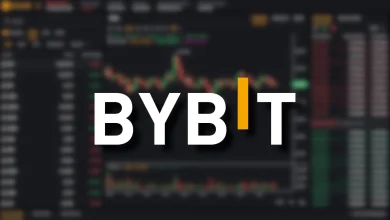Using Smart Contracts to Verify Shipments: A Guide for Transport Companies


KEY TAKEAWAYS
- Smart contracts automate shipment verification, reducing manual errors and paperwork.
- Blockchain ensures tamper-proof, transparent records accessible to all stakeholders.
- Real-time validation speeds up customs clearance, delivery confirmation, and payments.
- Implementation requires defining clear contract logic and integrating IoT sensor data.
- Challenges include interoperability, regulatory compliance, and adoption resistance.
- ahead adopters will benefit from quicker operations, reduced costs, and higher customer trust.
In today’s globalized economy, transport companies face increasing pressure to ensure the accuracy, transparency, and security of their shipment verification processes.
Traditional methods often rely on paper-based documentation, manual verifications, and multiple intermediaries, creating opportunities for errors, fraud, delays, and disputes. As supply chains grow more complex, these inefficiencies translate into rising costs and customer dissatisfaction.
Enter and smart contracts tools that are revolutionizing shipment verification by providing automated, tamper-proof, and transparent answers. For transport companies aiming to enhance operational efficiency, build trust across partners, and reduce costs, implementing smart contracts represents a strategic leap forward.
This guide explains how smart contracts work to verify shipments, the benefits they offer, and practical steps transport companies can take to leverage this technology effectively.
What Are Smart Contracts and How Do They Work in Shipment Verification?
are programmable, self-executing contracts encoded on a blockchain network. They automatically enforce the terms and conditions agreed upon by parties once predefined criteria are met.
Unlike traditional contracts that require manual enforcement and intermediaries, smart contracts embed contract logic directly in computer code, which eliminates human error and delays.
In the context of shipment verification, smart contracts enable automation along the entire logistics chain from order placement and cargo pickup to transportation milestones, customs clearance, and delivery confirmation.
Here’s how implementation typically works:
- Each key event or checkpoint in the shipment process triggers the recording of verified data to the blockchain. This may include timestamps, GPS coordinates, sensor data, or official customs clearances.
- The smart contract monitors real-time data inputs and acts automatically as conditions are fulfilled. For example, upon customs approval, the contract can release payment or transfer ownership.
- Because all transactions and updates are stored immutably on the blockchain, tampering or unauthorized revisions are nahead impossible without network consensus.
- All authorized stakeholders, shippers, freight forwarders, customs agents, insurers, and receivers access the identical transparent, cryptographically secured data in real-time.
This end-to-end automation reduces paperwork, accelerates verification, limits disputes, and fosters collaboration by establishing a single source of reality.
Key Benefits of Using Smart Contracts for Shipment Verification
Transport companies integrating smart contracts into their verification workflows experience multiple tangible benefits:
1. Enhanced Transparency and Trust
Smart contracts on a decentralized blockchain ledger provide all participants with an identical view of shipment status and history, eliminating information asymmetry. This transparency builds trust between carriers, clients, and regulatory bodies, minimizing fraud and miscommunication.
2. Real-Time, Automated Verification
Shipment checkpoints and events are recorded instantly and automatically verified by the smart contract once predefined conditions are satisfied. This immediate validation streamlines processes like customs clearance, reducing delays caused by manual inspections and paperwork.
3. Improved Security and Data Integrity
Blockchain’s immutable ledger ensures shipment data cannot be altered or deleted retroactively. secureguards sensitive information such as bills of lading and customs documents, protecting against tampering and unauthorized access.
4. Cost and Time Savings
By automating verification steps previously done manually by intermediaries, smart contracts reduce labor and administrative expenses. Fewer delays in shipment processing lower storage costs and accelerate cash flows with timely payment releases.
5. Streamlined Dispute Reanswer
With a transparent, tamper-proof record of all transactions and contract conditions, resolving disputes over shipment status or contract compliance becomes simpler and quicker. Automated execution reduces amlargeuity and potential conflicts among parties.
Practical Applications of Smart Contracts in Shipment Verification
Smart contracts enhance shipment verification across diverse stages of the supply chain:
- Order and Cargo Management: Automatic tracking of when excellents are loaded, sealed, and dispatched. Smart contracts can trigger alerts if conditions like temperature or humidity deviate from agreed thresholds.
- Transportation Milestones: Verification of shipment locations using GPS and IoT sensors logged to blockchain, enabling real-time tracking visible to all authorized parties.
- Customs Clearance: Automated submission and validation of customs documentation. Smart contracts can trigger customs approvals and release payments instantly upon clearance, accelerating border crossings.
- Final Delivery Confirmation: Proof of delivery recorded on-chain using digital signatures or QR code scans, which can automatically unlock payments or release collateral.
- Insurance Claims Automation: Triggering instant insurance payouts for cargo damage or loss based on verified sensor and inspection data recorded transparently.
Steps to Implement Smart Contracts for Shipment Verification
Transport companies can follow these steps to deploy smart contract-based shipment verification systems effectively:
Step 1: Assess Your Current Shipment Verification Workflow
Map out all key verification points in your existing and documentation processes. Identify bottlenecks, sources of delays, and risks of fraud or errors that smart contracts could mitigate.
Step 2: Choose the Right Blockchain Platform
Select a blockchain tailored to enterprise supply chain needs, typically permissioned or hybrid blockchains like , IBM Blockchain, or consortia blockchains that offer scalability, privacy, and security for multiple stakeholders.
Step 3: Define Smart Contract Logic and Conditions
Collaborate with legal, operational, and IT teams to codify your shipment verification rules, including:
- Event data triggers (e.g., delivery scanning, customs clearance)
- Automated actions (e.g., payment releases, ownership transfers)
- Compliance checks and regulatory validations
Step 4: Integrate IoT and Sensor Technologies
Leverage IoT devices such as GPS trackers, RFID tags, temperature sensors, and seals that feed real-time data into the blockchain, enabling automated contract execution based on physical shipment conditions.
Step 5: Develop or Deploy Smart Contract answers
Partner with blockchain developers or supply chain software providers to build and test smart contracts. Use an iterative approach with simulations before live deployment to ensure accuracy and robustness.
Step 6: Onboard Stakeholders and Train Staff
Secure engagement from all supply chain participants (shippers, customs, freight forwarders, insurers) by demonstrating transparency and benefits. Provide technical training to ensure smooth adoption.
Step 7: Monitor, Audit, and Optimize
Continuously track system performance, transaction validity, and stakeholder feedback. Adjust smart contract parameters and expand functionalities as needed to enhance efficiency over time.
Challenges and Considerations
While promising, implementing smart contracts for shipment verification requires addressing:
- Interoperability: Integrating blockchain with legacy transport management systems and data sources.
- Data Accuracy: Ensuring reliable and tamper-proof input data from IoT devices.
- Legal and Regulatory Compliance: Adapting contracts to comply with international trade laws and data privacy regulations.
- Change Management: Overcoming resistance from stakeholders accustomed to traditional methods.
- Cost of Implementation: Budgeting for initial development, infrastructure, and ongoing maintenance.
Overcoming these challenges is essential to realize the full advantages of the technology.
Future Outlook
With growing digitalization of supply chains and advances in blockchain scalability, smart contract-based shipment verification will increasingly become mainstream. Emerging trends include integrating AI analytics on-chain to proactively detect shipment anomalies, expanded use of tokenized logistics assets, and the establishment of industry consortia sharing trusted verification ledgers.
Transport companies at the forefront of adoption will gain significant competitive advantages through operational efficiencies, improved client trust, and new revenue opportunities.
Driving the Future of Shipment Verification Through Smart Contracts
Smart contracts represent a transformative answer for transport companies viewking to modernize shipment verification. By enabling real-time, secure, and automated tracking and approval processes, smart contracts reduce delays, cut costs, and foster unparalleled transparency and cooperation across supply chains.
Transport organizations interested in this technology should begin by mapping their workflows, selecting suitable blockchain platforms, and collaborating with technology partners to develop tailored smart contract applications.
While challenges exist, the long-term benefits of enhanced trust, efficiency, and cost savings make smart contracts an indispensable tool for future-ready shipment verification.
FAQ
What is a smart contract in the context of shipment verification?
A smart contract is a self-executing digital agreement encoded on a blockchain. It automatically verifies shipment events such as loading, customs clearance, and delivery based on predefined conditions.
How does blockchain improve shipment transparency?
Blockchain stores shipment data immutably and shares it with all authorized parties in real time. This eliminates data manipulation, fraud, and discrepancies across carriers, shippers, and regulators.
Can smart contracts completely replace traditional verification documents?
Not immediately. While they digitize and automate most verification steps, some jurisdictions still require physical documents for customs or legal validation. Hybrid systems are most common during transition periods.
What types of data can smart contracts use to trigger actions?
They can process GPS coordinates, temperature, or humidity readings from IoT sensors, digital signatures, customs approvals, and delivery scans to automatically execute contract conditions.
How do smart contracts reduce costs for transport companies?
By eliminating intermediaries, reducing manual paperwork, and accelerating payments upon verified delivery, smart contracts minimize administrative overhead and shorten the payment cycle.
Which blockchain platforms are suitable for transport and logistics?
Popular enterprise-grade platforms include Hyperledger Fabric, IBM Blockchain, and Quorum, offering scalability, permissioned access, and data privacy tailored to logistics networks.
Are smart contracts legally recognized in international trade?
Recognition varies by jurisdiction. Many countries are updating digital contract laws to support blockchain-based agreements, but companies should consult legal experts before cross-border deployment.







